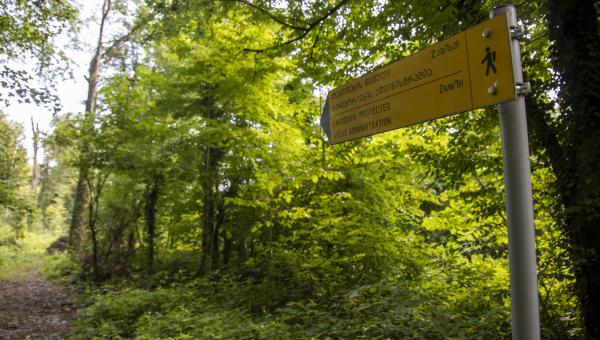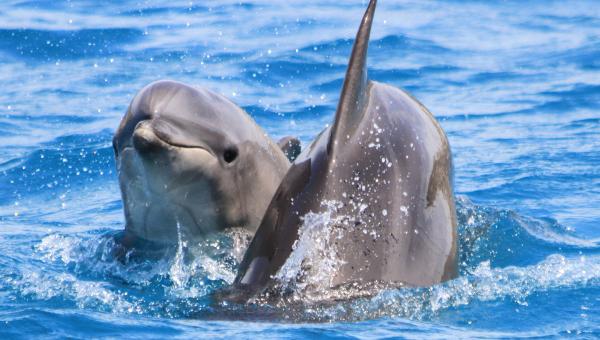Enhancing Financial Sustainability of the Protected Areas System in Georgia
Overview
Georgia is one of the few countries globally where protected areas are a national priority. Significant progress has been made to expand the protected areas network in the past decades, supported by legislative-institutional reforms, and the country is committed to increasing the area under formal protection to 30% protection (from the current 13,1%) by 2030. Despite progress, threats to globally significant biodiversity in Georgia from socio-economic development and climate change are exacerbated by ineffective implementation and enforcement of legislation and policies on Protected Areas.
With funding from the Global Environment Facility (GEF), UNDP, the Caucasus Nature Fund (CNF), and the Agency of Protected Areas (APA) help Georgia enhance financial sustainability and management effectiveness across its twelve largest protected areas, including:
- Algeti Protected Area
- Borjomi-Kharagauli Protected Area
- Javakheti Protected Area
- Kazbegi National Park
- Kintrishi Protected Area
- Lagodekhi Protected Area
- Machakhela National Park
- Mtirala National Park
- Pshav-Khevsureti National Park
- Tusheni National Park
- Tusheti Protected Landscape
- Vashlovani Protected Area
What We Do
In close cooperation with relevant stakeholders, we work to:
- Ensure sustainable and effective financing of twelve protected areas covering 431,872 ha with globally important biodiversity
- Improve institutional capacity for financial and operational management, and for monitoring in target protected areas
- Strengthen knowledge management and monitoring and evaluation which contributes to increased awareness of biodiversity values
Results
Protected Areas Management & Financial Sustainability:
- Updated operational plans for all twelve protected areas.
- Introduced Management Effectiveness Assessment Plans (MEAP) across all protected areas.
- Piloted eco-tourism investment projects to explore new income-generation opportunities in selected protected areas.
- Conducted comprehensive studies to explore financing and income-generation opportunities for protected areas. These include:
- Financial Gap and Income Generation Analysis, including a methodology for estimating financial needs.
- Ecosystem Service Valuation and Cost-Benefit Analysis followed by an information campaign supporting protected area expansion and financing.
- Finance Opportunity Analysis.
- Alternative Revenue Generation for local needs and development.
- Entrance fee study in the Mtirala and Lagodekhi protected areas,.
- Alternative revenue generation study for all protected areas.
- Climate Change Vulnerability Assessment and Adaptation Plans for selected protected areas followed by the study on identification of local climate refugia, including development of recommendations for effective management of identified sites.
Biodiversity Monitoring:
- Established the Biodiversity Monitoring Council under the Ministry of Environmental Protection and Agriculture (MEPA), engaging key government, academia, and civil society stakeholders.
- Set up Biodiversity Monitoring Coordination Units within MEPA’s Biodiversity and Forestry Departments and the Agency of Protected Areas.
- Launched a 10-year Biodiversity Monitoring Programme and Plan across the twelve protected areas, ensuring ongoing field monitoring of biodiversity values and threat indicators beyond the project.
- Implemented the Spatial Monitoring and Reporting Tool (SMART) in all protected areas.
Training and Capacity Development:
- Developed a National Training Strategy and Programme for the protected areas’ system, including a five-year training plan and a 10-year training concept.
- Launched an online training platform offering courses in protected areas management, environmental tourism, ranger work, and more.
- Conducted thematic training for APA staff in areas such as first aid, communication, and financial management.
- Piloted community-based income generation initiatives.
Piloting New Approaches:
- Developed new infrastructure in Borjomi-Kharagauli National Park, including a tourist shelter and a Business Service Yard in Nedzvi, to promote environmental tourism and support sustainable timber processing.
Contact information
Address
UN House
9, Eristavi Street
Tbilisi 0179 Georgia
Contact person
Irakli Goradze
Project Coordinator
irakli.goradze@undp.org
Nino Antadze
UNDP Environment and Energy Team Leader
nino.antadze@undp.org

 Locations
Locations





